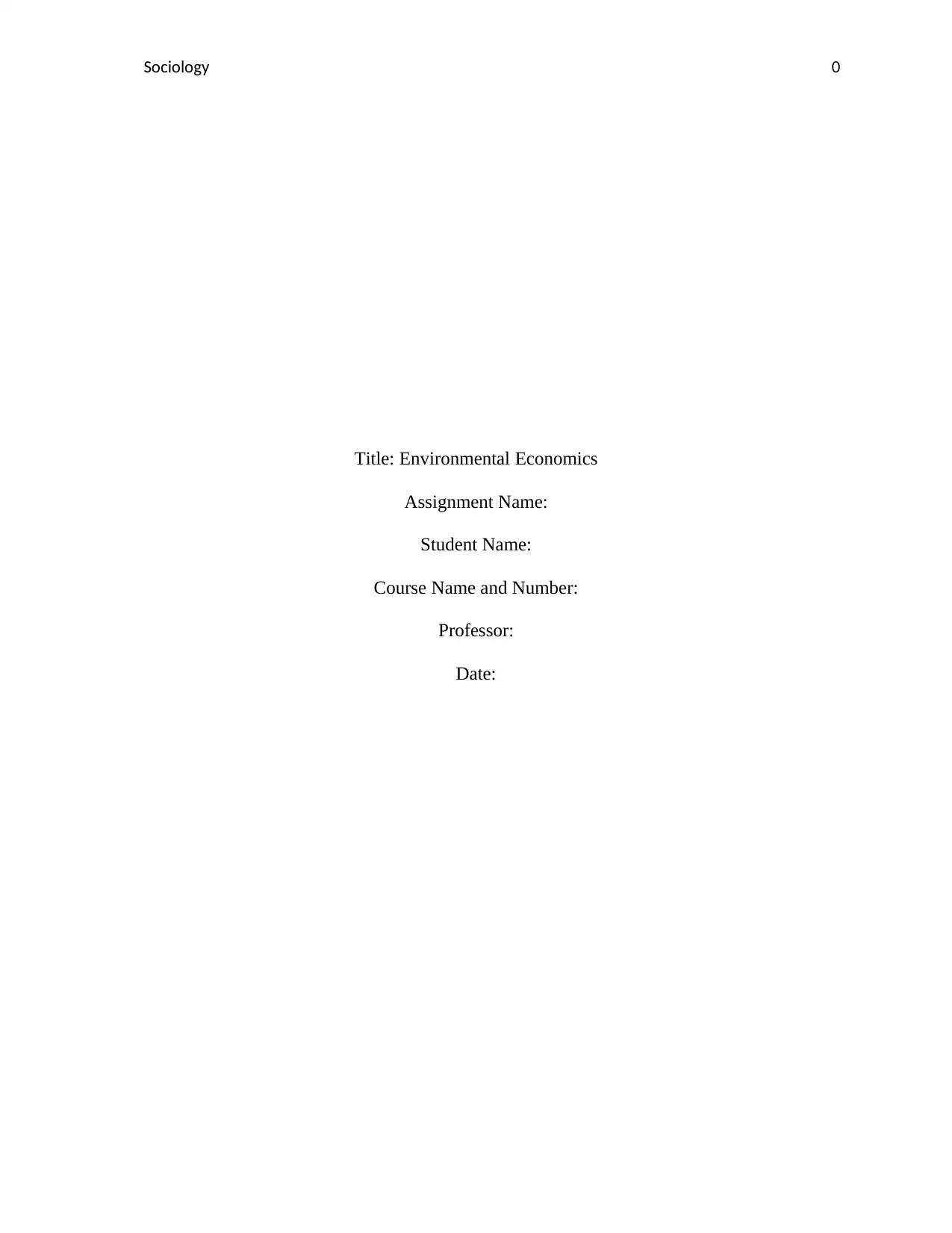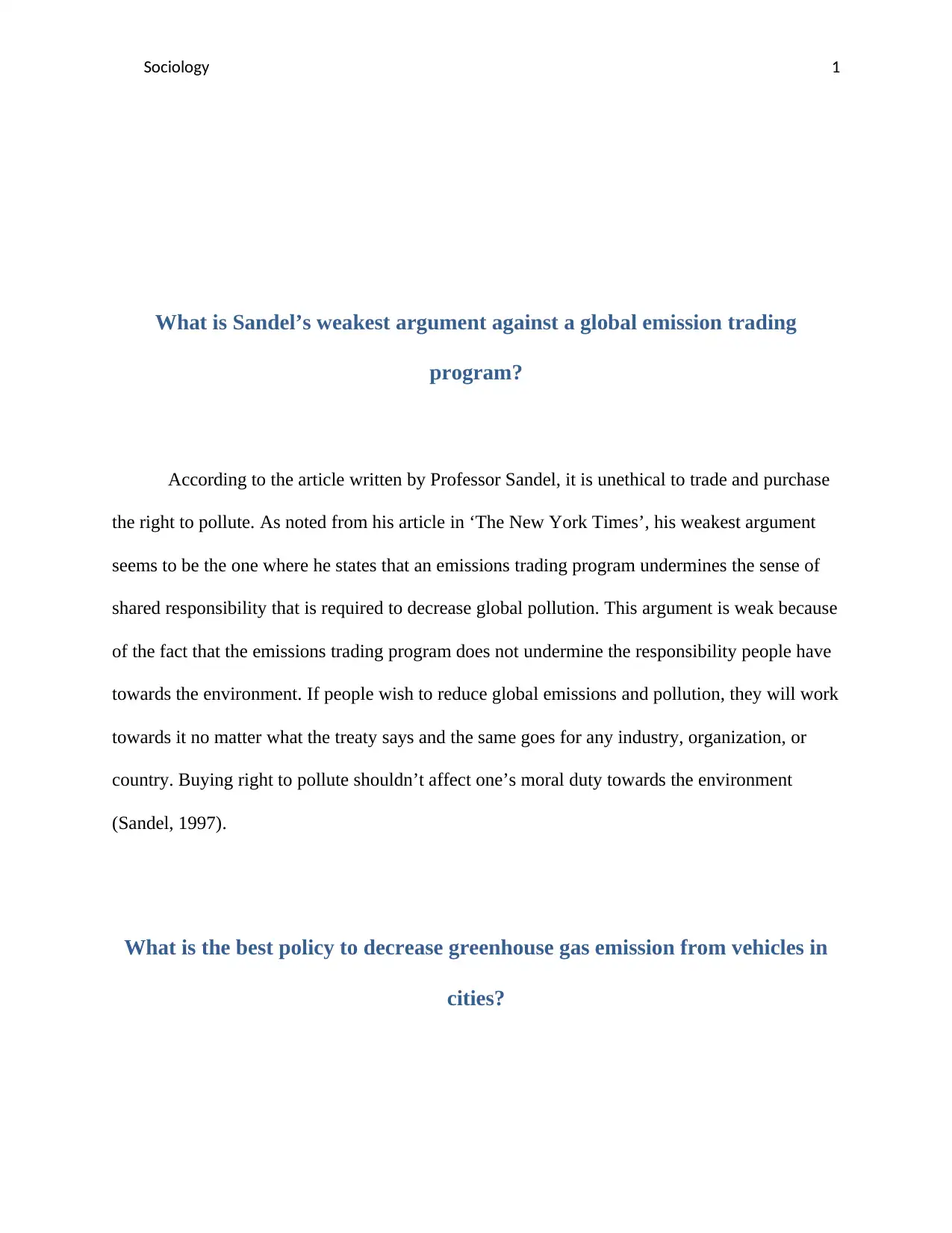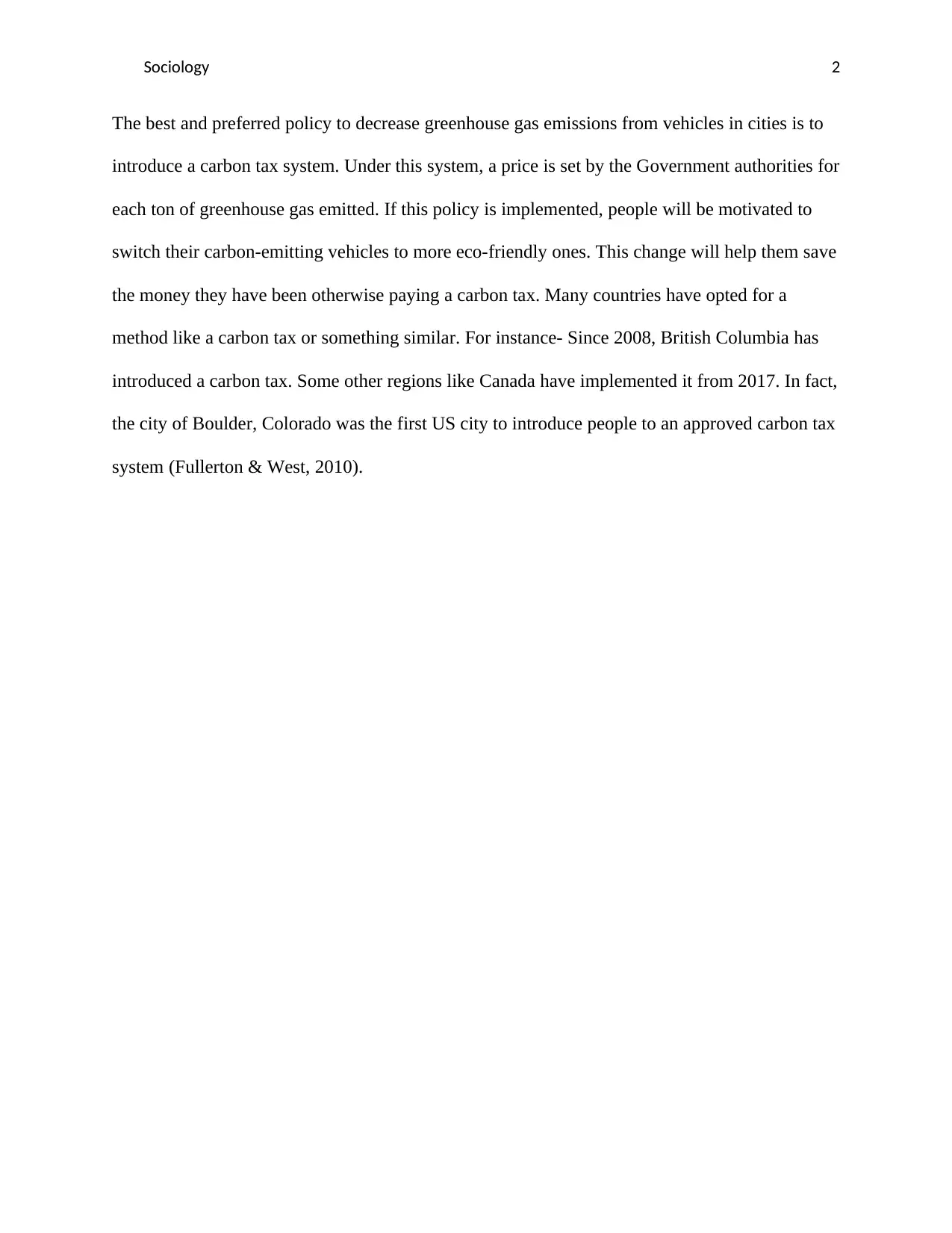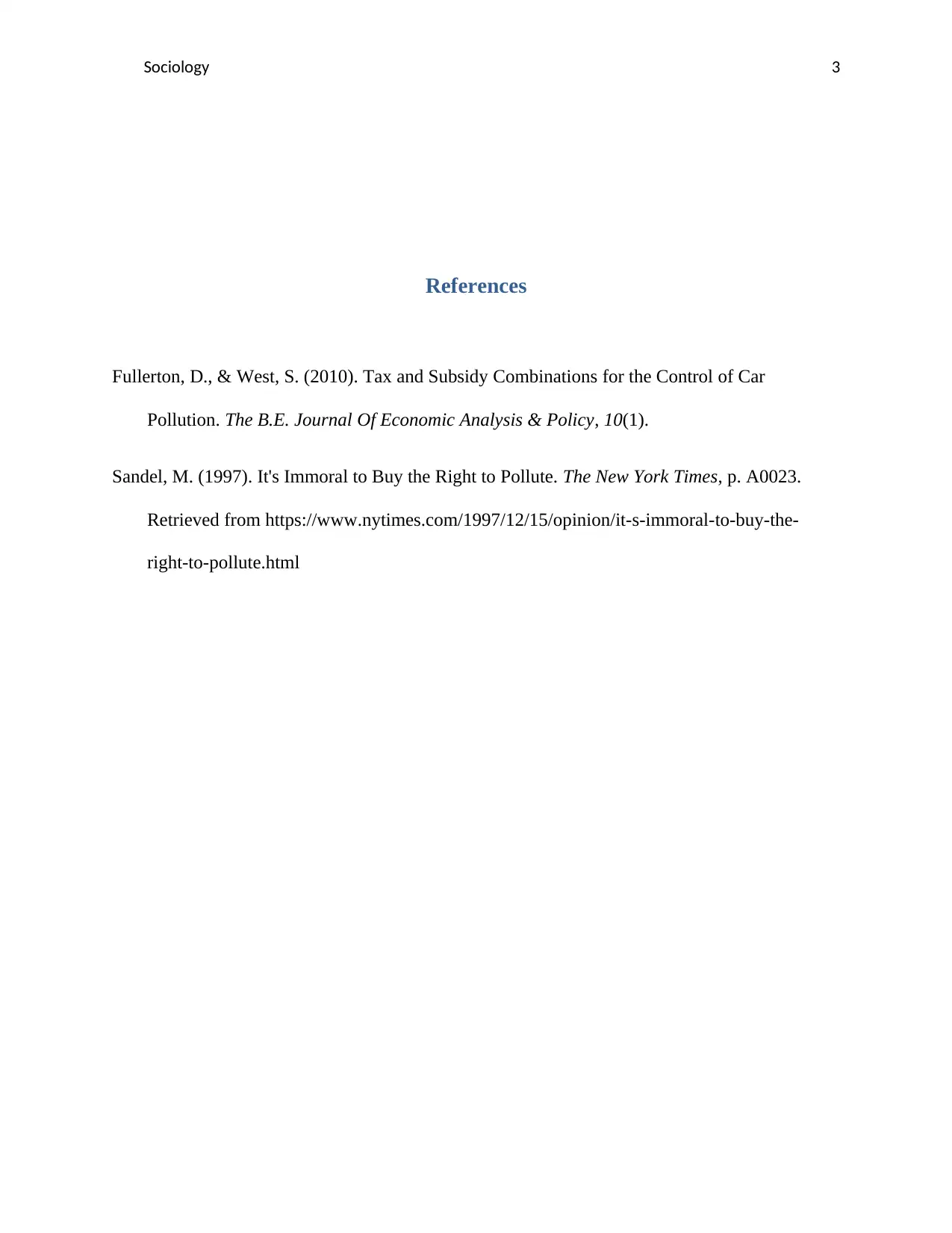Environmental Economics Assignment: Carbon Tax, Emissions & Pollution
VerifiedAdded on 2022/12/03
|4
|412
|23
Report
AI Summary
This assignment delves into the realm of environmental economics, focusing on two primary aspects: a critical analysis of Michael Sandel's argument against emissions trading programs and an examination of policies aimed at reducing greenhouse gas emissions from vehicles. The assignment begins by identifying and critiquing Sandel's weakest argument, which centers on the idea that such programs undermine a sense of shared responsibility for environmental protection. The author contends that this argument is flawed, as individuals and entities retain their moral obligations regardless of any trading program. Subsequently, the assignment advocates for the implementation of a carbon tax system as the most effective policy for mitigating emissions from vehicles in urban areas. The author explains how a carbon tax incentivizes the adoption of eco-friendly alternatives, providing examples of successful implementations, such as the systems in British Columbia and Boulder, Colorado. The report draws on academic sources to support its claims, offering a comprehensive overview of these crucial economic and environmental concepts.
1 out of 4







![[object Object]](/_next/static/media/star-bottom.7253800d.svg)